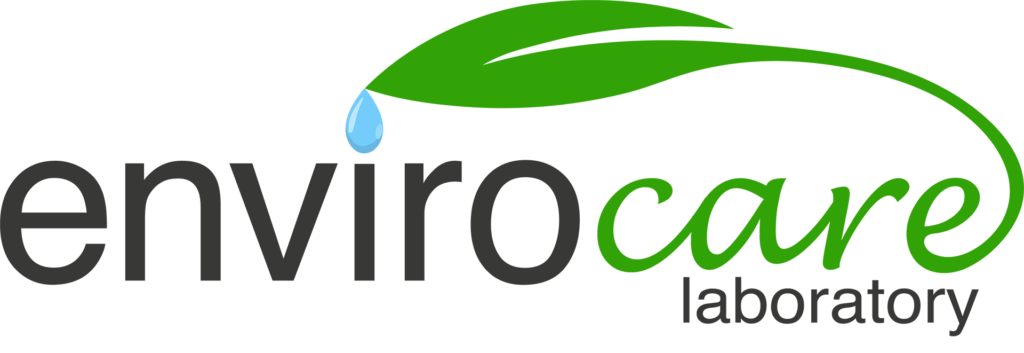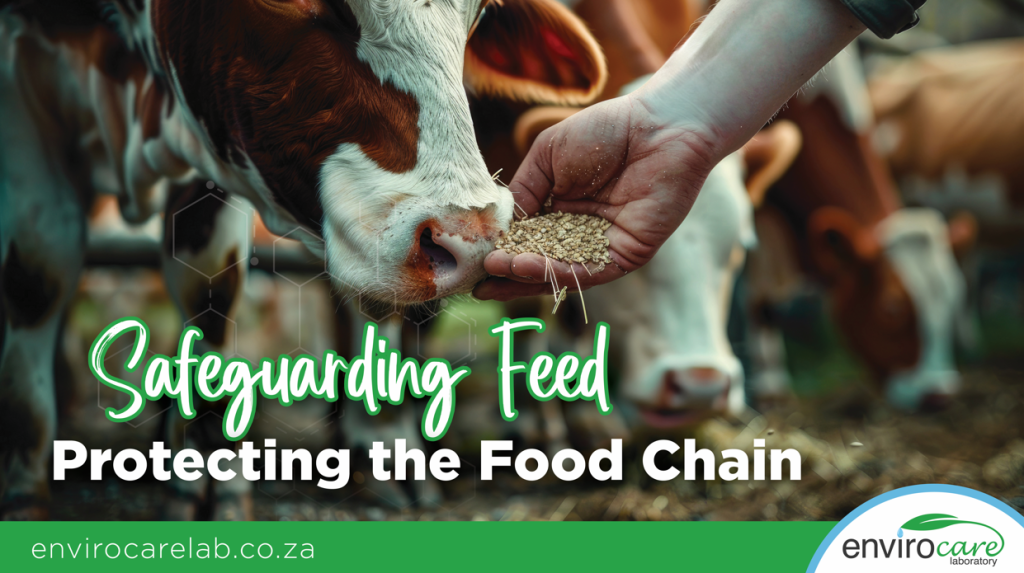As the first step in the food production chain, animal feed must be free from harmful pathogens, especially Salmonella, one of the most significant threats to feed quality and animal health.
At Envirocare Laboratory, we provide Salmonella detection using ELISA (Enzyme-Linked Immunosorbent Assay), a rapid, sensitive, and cost-effective test that allows feed producers, farmers, and suppliers to ensure compliance, protect animals, and prevent costly outbreaks.
Why Salmonella Testing in Animal Feed is Essential
Salmonella is a dangerous zoonotic pathogen that affects both animals and humans. Contaminated feed can silently introduce the bacteria into a farm, leading to:
-
Reduced productivity and poor weight gain in livestock
-
Reproductive issues in breeding animals
-
Increased mortality rates
-
Contaminated meat, milk, or eggs entering the food chain
Outbreaks can result in quarantines, product recalls, and public health warnings, causing significant financial and reputational damage.
Routine Salmonella testing is not just good practice, it’s a requirement for regulatory compliance in many markets.
ELISA Testing for Salmonella – Fast, Reliable, and Affordable
Traditional Salmonella detection methods, such as bacterial culture, can take several days.
In contrast, ELISA testing detects Salmonella-specific antigens within 24 hours of sample submission.
Advantages of ELISA for Salmonella in animal feed:
-
Fast turnaround time – negative results within 24 hours
-
High sensitivity and specificity – detects even low contamination levels
-
Cost-effective – suitable for routine monitoring
-
Proactive risk management – act before contamination spreads
By getting faster results, feed producers can respond quickly, prevent product recalls, and protect both livestock and customers.
Comprehensive Animal Feed Microbiological Testing
While Salmonella testing is critical, a full feed safety program should include monitoring for other microbial hazards.
At Envirocare Laboratory, we also test for:
-
Enterobacteriaceae – hygiene indicator bacteria
-
Escherichia coli (E. coli) – including pathogenic strains
-
Listeria monocytogenes – common in silage and damp feed
-
Molds and yeasts – potential mycotoxin producers
-
Total aerobic plate count – general bacterial load indicator
This complete testing approach ensures your feed meets the highest safety and hygiene standards.
Meeting Animal Feed Safety Regulations
Regulatory authorities worldwide set strict limits for Salmonella in animal feed.
For example:
-
The European Union enforces zero-tolerance for Salmonella in poultry feed.
-
In South Africa, the DALRRD sets microbiological standards for feed safety.
-
The U.S. FDA and International Feed Industry Federation (IFIF) also outline strict testing guidelines.
Failing to meet these standards can lead to export bans, fines, and plant shutdowns.
Why Choose Envirocare Laboratory for Animal Feed Testing
When searching for an animal feed testing laboratory, here’s why Envirocare stands out:
- Salmonella ELISA Testing – Negative results available within 24 hours, positive results confirmed within 48 hours. Fast, precise, and cost-efficient
-
Comprehensive Feed Microbiology Services – from Salmonella to molds and yeasts.
-
Tailored Testing Programs – designed for feed mills, ingredient suppliers, and farmers.
-
Regulatory Support – helping you meet both local and international requirements.
-
Modern Laboratory Facilities – equipped with advanced instrumentation and staffed by experienced microbiologists.
Protect Your Livestock and Business – Test Your Feed Today
Don’t wait for contamination to damage your reputation or your animals’ health.
Contact Envirocare Laboratory today for Salmonella ELISA testing and full animal feed microbiological analysis.
Contact Envirocare Laboratory
Get answers, not just results.
📍 6 Du Plooy Street, Potchefstroom
📞 018 294 4283
📧 info@envirocarelab.co.za
🌐 www.envirocarelab.co.za
Need regional support? Contact our Western Cape team:
📧 info_westerncape@envirocarelab.co.za | 📞 +27 81 834 7198
References
- Food and Agriculture Organization (FAO). “Animal Feed Safety: Contaminants and Toxins in Animal Feed.” www.fao.org
- Centers for Disease Control and Prevention (CDC). “Salmonella and Animal Feed.” www.cdc.gov
- European Commission. “Microbiological Criteria for Feed and Food Safety.” https://food.ec.europa.eu
- U.S. Food and Drug Administration (FDA). “Guidelines for the Safety and Quality of Animal Feed.” www.fda.gov
- International Feed Industry Federation (IFIF). “Feed Safety Management Practices.” www.ifif.org
- European Food Safety Authority (EFSA). “Scientific Opinion on Salmonella in Animal Feed.” www.efsa.europa.eu


